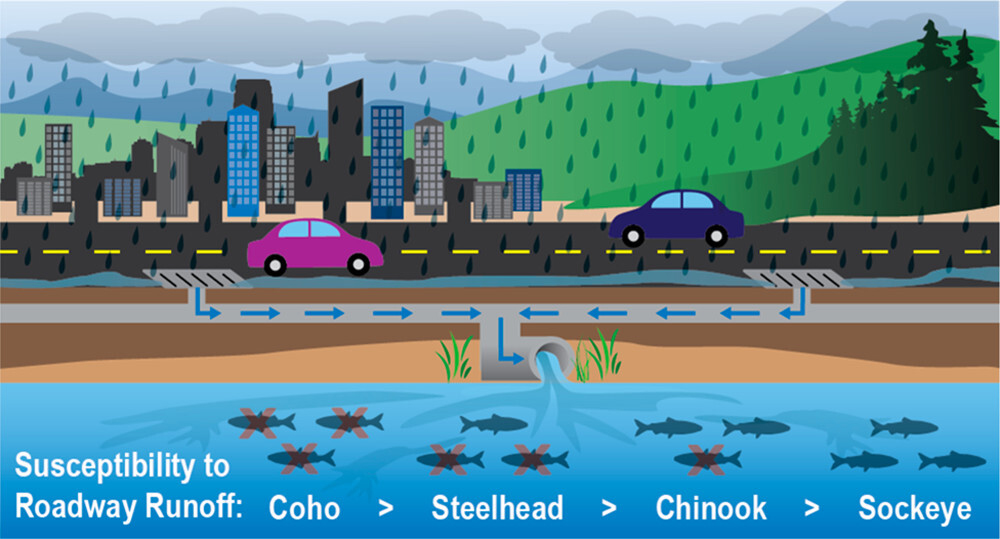
Researchers with NOAA Fisheries have released a report showing that stormwater runoff containing a toxic compound from automobile tires washed into streams is lethal to protected coho salmon, Pacific steelhead and Chinook salmon, while sockeyes appear to be largely unaffected.
The report, which was released Aug. 24, could help inform mitigation efforts for construction and overhaul of highways on the West Coast, to protect salmon and steelhead in the future, researchers said.
Steelhead are rainbow trout that migrate to the ocean like salmon.
Some Western states are already designing highways with inexpensive filtration measures proven to protect salmon.
According to Barbara French, a research scientist at NOAA Fisheries’ Northwest Fisheries Science Center in Seattle, biofiltration appears to remove a decent amount of the toxicity.
“As we learn more about the effects of roadway runoff on fish, we learn more about where these mitigation efforts are most warranted,” she said.
NOAA Fisheries has been investigating causes and conservation implications of fish deaths caused by urban runoff for the past 20 years. Information contained in this report provides a better understanding of the impact of untreated stormwater runoffs on recovery efforts for threatened fish species, particularly in rapidly urbanized areas of California Oregon, Idaho and Washington.
The tire compound 6PDD, a major antioxidant compound used to reduce the breakdown of rubber in tires, turns into another chemical, 6PPD-quinone, which is deadly to coho salmon at extremely low concentrations and is often found in urban streams.
Stormwater runoff from roads can kill both juvenile and adult coho salmon within a few hours. Research shows that even stormwater diluted to a mixture of 5% highway runoff has killed juvenile coho salmon.
Juvenile steelhead and Chinook salmon were not as severely impacted, but they also suffered from toxic runoff, according to the report. The research showed that 42% of juvenile steelhead died after 24 hours of exposure in untreated urban stormwater runoff, as well as up to 13% of Chinooks, while juvenile sockeyes survived exposure to the toxic runoff.
The Endangered Species Act requires that roadbuilding activities by federal agencies, or with federal funding consider impacts on listed species, including 28 species of West Coast salmon and steelhead listed as threatened and endangered.
California authorities have proposed new mandates requiring tire manufacturers to seek alternatives to 6PPD. It’s not clear exactly how the tire compound weakens and kills fish; scientists are calling for further research to assess sublethal toxicity.
The study was published in the American Chemical Society’s online peer-reviewed scientific journal Environmental Science & Technology, and can be found here: https://pubs.acs.org/doi/10.1021/acs.estlett.2c00467.
